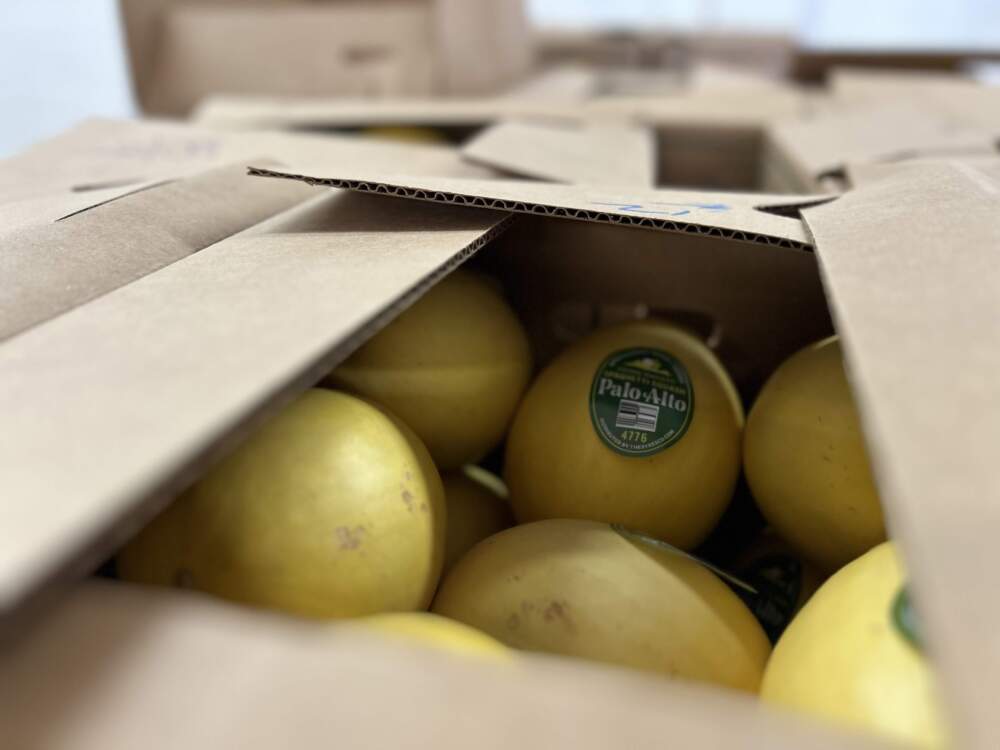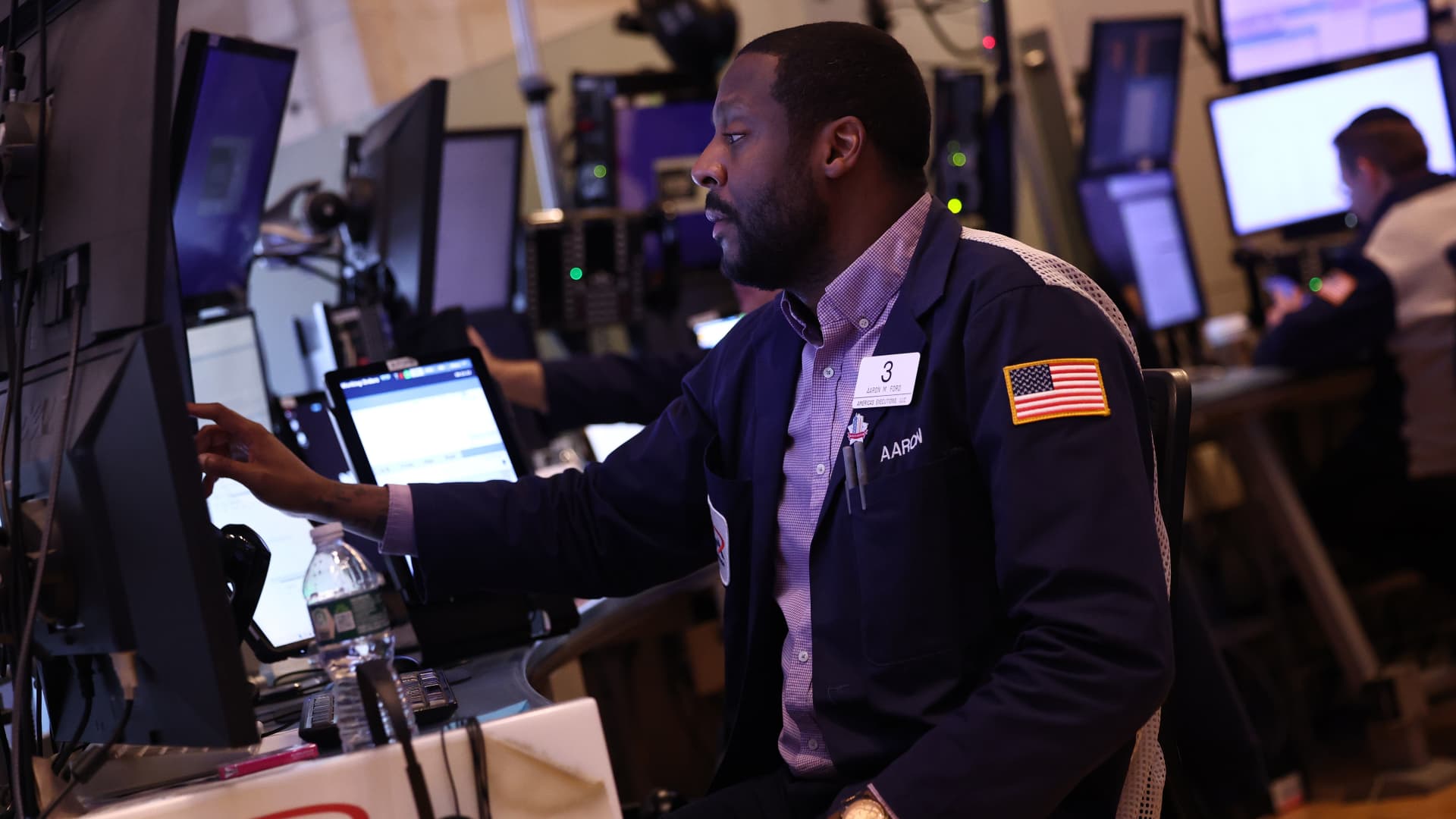During the busy winter produce season, about 2,000 trucks rumble into the United States every day from the Mariposa port of entry in Nogales, Arizona.
Many of those trucks are full of fruits and vegetables from Mexican farms. And with the threat of President Trump’s planned tariffs on Mexican imports still on the table, the companies importing the produce into the U.S. are getting nervous about the future.
“Everybody started panicking,” said Miguel Romero, a salesman for the Sykes Company, an importer that works with Mexican farms to distribute produce to grocery stores across the country.
Inside its Nogales warehouse this week, boxes of butternut and spaghetti squash are stacked high before they’re loaded up and sent to “wholesalers, chain stores, mom-and-pop stores,” Romero said.
People working in this border industry are keeping a close eye on Trump’s threat to impose 25% tariffs on Mexican products like squash.
Earlier this week, Trump made a deal with Mexico and Canada to pause the tariffs for a month. In exchange, Mexico promised to beef up border security to keep drugs and people from illegally crossing into the U.S.
After that 30-day pause lapses, border cities like Nogales could still be ground zero for a trade war. Mexico is the largest food importer in the United States. In 2023, Mexican growers supplied 63% of the vegetables shipped into the U.S.
Trump’s showdown with Mexico created “panic” and “chaos,” said Nogales customs broker Demetrio Kyriakis. “It’s a total game changer.”
Brokers help importers like the Sykes Company navigate the paperwork and red tape that come from shipping goods across international borders. Kyriakis said the phone has been ringing off the hook since Trump started threatening tariffs on Mexico.
New tariffs would be a culture shock to a border region that has experienced more than three decades of free trade with Mexico.
Kyriakis said importers haven’t paid any duties on Mexican produce thanks to the North American Free Trade Agreement — signed by Mexico, Canada and the U.S. in 1992 — and the subsequent USMCA trade deal that Trump signed during his first administration.
“It’s very difficult because we could see a lot of businesses shutting down,” he said.
At the very least, the cost of doing business would certainly rise. Kyriakis says the government requires importers to secure bonds when bringing goods across the border. Getting those bonds would be more expensive and require more collateral with new tariffs, he said.
On the other hand, Kyriakis said he understands why Trump is putting pressure on Mexico.
“I really do believe that in the case of Mexico, he is using it as leverage,” to force Mexico to stop illegal immigration and fentanyl from getting into the U.S., he said. “The Mexican government should be doing more.”
The border region is accustomed to uncertainty.
Sykes Company founder Bill Sykes has seen a lot of it in 47 years of doing business along the border.
He remembers a palpable fear in 2001 after the terror attacks on Sept. 11, when “we weren’t sure if they were going to close the border, and they never did,” he said. “We were very concerned about that because we didn’t know what was going to happen.”
Sykes said the industry survived that period of uncertainty — and it will survive this one, too.
“Being in the produce business, you’re going to see something new every year to contend with and you’re going to learn from it,” he said. “We will solve it somehow … You’ve got to eat.”
This segment aired on February 7, 2025.


